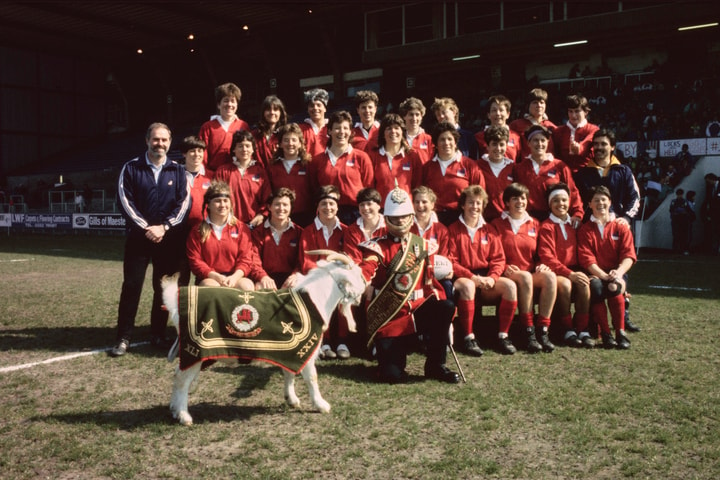Maxine Edwards was the first Red Roses captain to lead her side out onto the pitch at Twickenham. At the time, Edwards commented "Looking from where I started, 13 years ago, I'd never have thought we'd have been playing at Twickenham."
Born in London in 1966, Edwards' rugby career began at Bromley RFC at age 19 and she captained the side through their move to become Blackheath women's team, describing Blackheath as her 'rugby family'. Edwards played in the 1991 inaugural women's Rugby World Cup as flanker but then moved to prop whilst her sister Jacquie, who went on to score the winning try for England at the 1994 women's Rugby World Cup final in Scotland, was a back. Edwards played in three World Cups and won 45 caps in total, and in 2010 was awarded an MBE for services to rugby.








